In the age of social media it is easy to believe that we get caught up in the social tidbits of the lives of others. Perhaps that is true but it certainly did not begin with the invention of Facebook. Long before the internet personal interest pieces were heavily circulated in local and national newspapers. It was commonplace for the town newspaper to print short (and sometimes long) articles about the social activities of townspeople: whom they were courting, what parties they attended, and who had done what large favor for whom.
While our society has held onto this tradition with both obituaries and engagement announcements, much of what was published in newspapers in the 19th and early 20th centuries has found a new, self-published home on the internet. Facebook allows users to share photographs of what they are doing as well as update their location whenever they would like, informing all of theirs friends where they are and what they are doing.
In the same way that they do today, newspaper articles went viral in the 19th century, just much more slowly. According to a Northeastern University study on the subject, out of 2.7 million pages of 600 newspapers analyzed, 650 articles “went viral”, that is to say, they were reprinted 50 times or more. In a time when there were hundreds of newspapers in circulation, articles seemed to come and go so quickly. It was as though there were not enough hours in the day to read all of the articles and not enough room in your house to store all of the old newspapers. People believed that the coming and going of so much information in so many different newspapers was overwhelming, a common current complaint about the never-ending supply of information on the internet.
As a prominent Arlington family, the Winn’s social lives often found their way into the local papers. Some of these short articles about the family would seem common to us today, such as this piece from 1903,
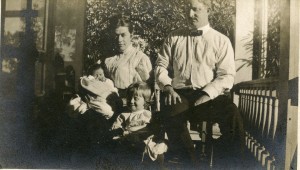 “=Wednesday afternoon, at five o’clock Miss Mabel Clare, daughter of Mrs. Esther A. Hartwell, was united in marriage to Mr. George Albert Winn, son of Mr. George P. Winn, whose name is among Arlington’s oldest and most respected families. The ceremony was performed at the home of Rev. Henry A. Cook, of Cambridge, a former pastor of the bride’s family. The couple was attended by Miss Maude Hartwell, twin sister of the bride who was maid of honor, and Miss Nina Winn, sister of the groom, who acted has[sic] “best man.” After a wedding journey the couple will reside at 18 Swan place, where they will be at home after December the first…”
“=Wednesday afternoon, at five o’clock Miss Mabel Clare, daughter of Mrs. Esther A. Hartwell, was united in marriage to Mr. George Albert Winn, son of Mr. George P. Winn, whose name is among Arlington’s oldest and most respected families. The ceremony was performed at the home of Rev. Henry A. Cook, of Cambridge, a former pastor of the bride’s family. The couple was attended by Miss Maude Hartwell, twin sister of the bride who was maid of honor, and Miss Nina Winn, sister of the groom, who acted has[sic] “best man.” After a wedding journey the couple will reside at 18 Swan place, where they will be at home after December the first…”
Others, though, had more personal information, something we, today, would see as too private to publish in a public newspaper. For example, an article written about Susanna A. Winn’s exclusive 50th birthday party (the Old Maid’s Party) detailed exactly what happened throughout the party, who attended, and which poems were read. As Susanna chose only to invite other unmarried women to her party, the rest of the town was sitting on the edge of their seats, waiting learn what they had missed out on.
An account of the party was published on October 4, 1902, six days after the event.
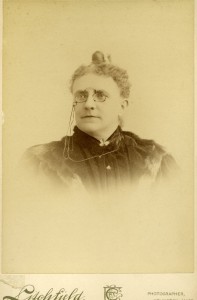 “Fifty “maiden” friends of Miss Susanna A. Winn have for several weeks been looking forward to the celebration of her fiftieth birthday, to which they each had received a specially worded invitation to an “old maid’s party,” written on an attractive note sheet bearing a fine engraving of the Winn homestead on Summer Street, where the affair was to be held, the year of her birth and celebration, as well as a private seal, a saw, which curiously constitutes the initials of her name, and which is always seen on the productions from her brush. The anniversary came on Sunday, Sept. 28th, and so naturally was celebrated on that day. The guests included not only Arlington friends, but others… The house was made fragrant by bouquets of choice roses in clusters of fifty, which came not only from the bidden guests but many from the unbidden, who were not even permitted to look upon the happy company, who were proud of the title and not ashamed to be called the old maids… Here good cheer and mirth abound, which found vent in the witty poems and original song composed and given by some of the guests….”
“Fifty “maiden” friends of Miss Susanna A. Winn have for several weeks been looking forward to the celebration of her fiftieth birthday, to which they each had received a specially worded invitation to an “old maid’s party,” written on an attractive note sheet bearing a fine engraving of the Winn homestead on Summer Street, where the affair was to be held, the year of her birth and celebration, as well as a private seal, a saw, which curiously constitutes the initials of her name, and which is always seen on the productions from her brush. The anniversary came on Sunday, Sept. 28th, and so naturally was celebrated on that day. The guests included not only Arlington friends, but others… The house was made fragrant by bouquets of choice roses in clusters of fifty, which came not only from the bidden guests but many from the unbidden, who were not even permitted to look upon the happy company, who were proud of the title and not ashamed to be called the old maids… Here good cheer and mirth abound, which found vent in the witty poems and original song composed and given by some of the guests….”
This, being only a snippet of that article, shows the attention to detail of an intimate gathering. Today, this is equivocal to posting photographs of a party on Instagram, allowing everyone who did not attend the party to see what they missed.
While the means of spreading information is ever changing, the fact that people enjoy reading about the lives of their peers has not changed. Before social media newspapers acted as the agent that informed the people of local gossip, exciting happenings, and the never-ending supply of interesting inhabitants of Arlington, MA.
Written by Megan Carden
References:
Thompson, Clive. “When Copy and Paste Reigned in the Age of Scrapbooking”. Smithsonian Magazine. July 2014. http://www.smithsonianmag.com/history/when-copy-and-paste-reigned-age-scrapbooking-180951844/
Peterson, Britt. “There Were Listicles That Went Viral Long Before There Was an Internet”. Smithsonian Magazine. July 2015. http://www.smithsonianmag.com/innovation/listicles-went-viral-long-before-internet-180955742/?no-ist


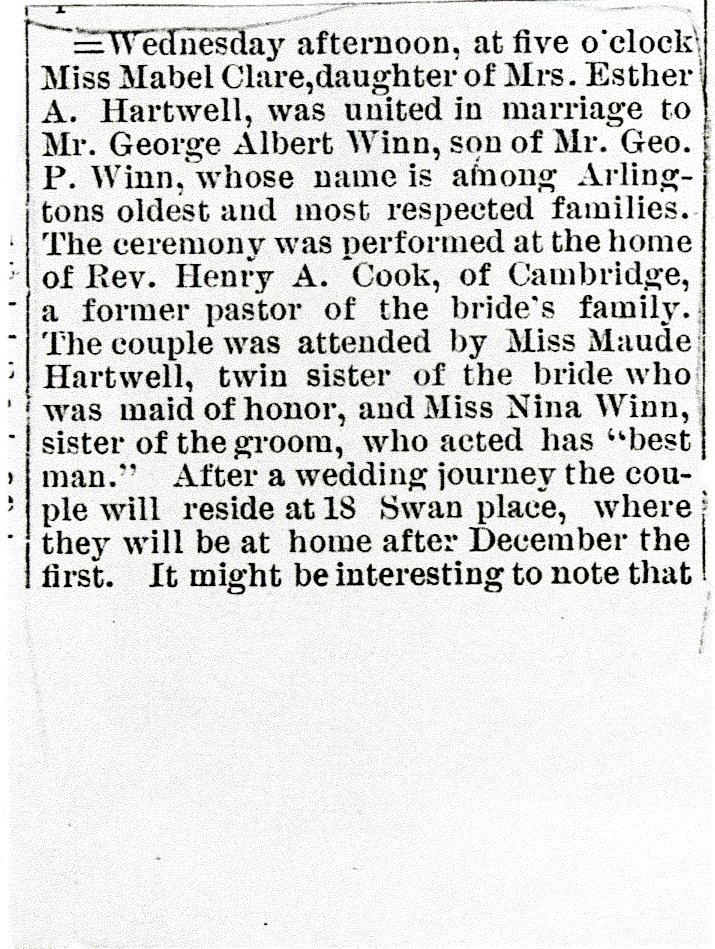
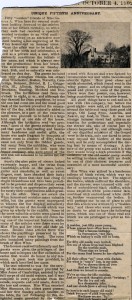
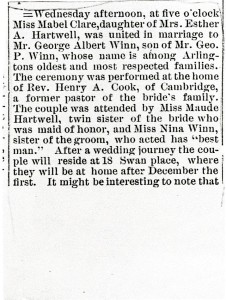
Leave a Reply